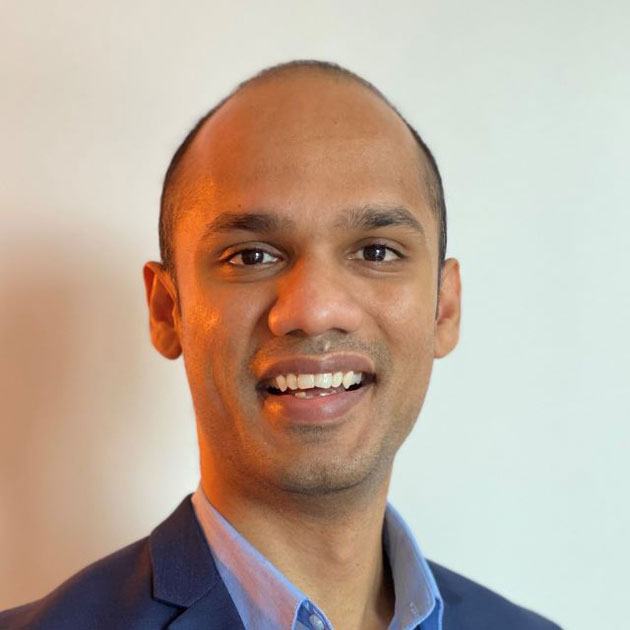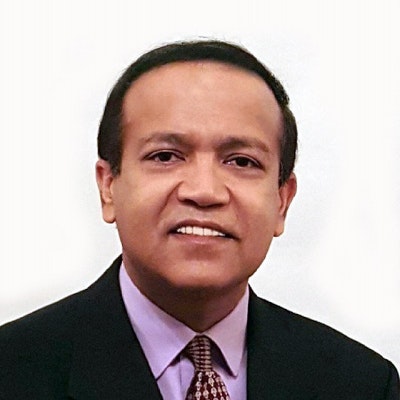
Senior Business Analyst; New York Life Insurance Company
Hansen’s two degrees from UT Dallas are a fairly common combination – an undergrad degree from the Erik Jonsson School of Engineering and Computer Science, in his case in software engineering; and a master’s degree from Jindal School of Management, in Hansen’s case an MS/Information Technology and Management. At New York Life, Hansen is part of the newly established data governance team. “I interact with subject matter experts from different departments such as Investments and Customer Service to catalog data in a consistent metadata management way, profile important data with the goal of improving its quality, and make data easily shareable to stakeholders,” Hansen says.
What does a day in your professional life look like?
One day might be spent visualizing which systems use a given data asset and another day might involve eliciting and modeling data requirements from a marketing analyst looking to develop targeted campaigns, requiring a detailed study of a certain customer population. Our team is responsible for answering questions like: “Where is this type of data stored?” “How is this data protected against unauthorized usage?” “Does the format of this data meet regulations?” “Where does this data change as it moves from system to system?” Occasionally I’m involved with recruiting and mentoring interns to help them apply their classroom knowledge and learn about different career paths the company offers.
How has your degree impacted your career?
The ITM program truly instills a mindset of utilizing information technology to help unlock business value regardless of the nature of the company you might work for. The core business classes and technology classes, along with many electives, expanded my skills to serve as an analyst who can discuss marketing strategies for personalization initiatives and educate nontechnical employees on which software development process is best suited to effectively implement their requirements.
What do you enjoy about your current position/profession?
Working for a 173-year-old company provides a fantastic environment to observe how business processes and technology evolved over time. My job involves interaction with software engineers, project managers and customer service representatives. This gives me the chance to increase my knowledge of what each job field entails. Aside from the professional development, I benefit as an individual by learning how financial securities and investment products work.
How do you see your profession changing in the next five or 10 years?
Historically, IT has focused more on the “T” aspect with the introduction of distributed mobile technologies, cloud computing, etc. We have entered the “I” part with emphasis on big data and ethically using it as an economic asset to establish new business models and provide better services. Business analysis in the future will be at the heart of determining what should be “datafied” and analyzed by artificial intelligence software to help make better decisions.
What unexpected experience or event has shaped and/or influenced your current professional life?
When I joined UT Dallas as an undergraduate student, I was pleasantly surprised to find myself at the center of an international hub of highly intelligent and motivated individuals who taught me how to interact with diverse groups. This experience was vital in preparing me to successfully adapt in multicultural, geographically dispersed corporations.
What characteristics do you look for when hiring people into your workplace?
Understanding of fundamental theories, flexibility in applying them to resolve issues or develop a strategic plan, dependability and an eagerness to learn about the company’s method of operating.
What advice do you have for college students hoping to succeed professionally?
Take the time to understand the basic concepts and history of your field of interest. It’s advantageous to embrace a multidisciplinary view and learn how your work correlates with other people’s jobs as most organizations hold in high regard employees who can successfully interact with various stakeholders to solve enterprise problems. Outside of the classroom, it’s crucial to surround yourself with like-minded individuals who share similar professional goals. They may be the foundation of your network, which will ultimately help with developing skills, employment prospects and establishing lifelong relationships.
What do you enjoy doing in your free time?
Swimming, reading technology and nonfiction books, playing chess with my father, and most recently, and surprisingly, landscaping with my wife.



